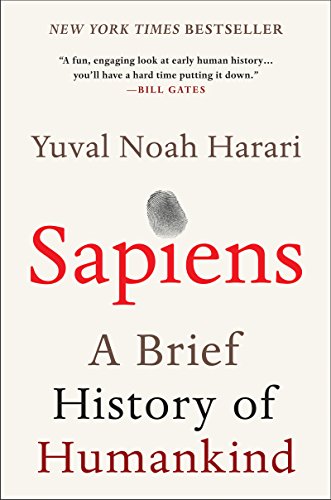

This article is an excerpt from the Shortform summary of "Sapiens: A Brief History of Humankind" by Yuval Noah Harari. Shortform has the world's best summaries of books you should be reading.
Like this article? Sign up for a free trial here .
What are non-theistic religions? Is nontheism different than atheism? What is nontheism’s definition?
Non-theistic religions are religions that do not require or espouse the belief in a God or gods. Non-theistic religions often don’t say God doesn’t exist, as atheism does; gods just aren’t part of their belief systems.
We’ll cover some of the most common non-theistic religions, go deeper into the nontheism definition, and look at how they influence the world today.
What Constitutes a Religion?
Before we look at the nature of non-theistic religions, let’s look at the definition and requirements that make a belief system a religion. Often, non-theistic religions don’t seem like a religion, at least not a religion like Christianity, so it’s important to understand the definition of the term. Then, we’ll look at the additional requirements that give particular religions their unifying function.
To be a religion, a system has to meet two requirements:
- The system has to be predicated on the belief in a “superhuman” order. As used here, “superhuman” is defined as “not the product of human actions.” For instance, professional soccer shares a lot in common with religion: it contains rituals, rites, and laws. But because these rituals and laws are determined by humans (in this case, FIFA), professional soccer isn’t a religion.
- The system must establish norms and values, like modesty in dress or showing compassion. Many people believe in ghosts, but these beliefs don’t give us moral standards to meet, so they don’t constitute a religion.
Non-theistic religions meet both these requirements. The religions that revolutionized the world and led us toward a more global empire have two more requirements.
- The system must be universal. Believers must believe that their system is true everywhere and applicable to everyone. Below, we’ll look at how local religions like animism gave way to universal religions like Christianity.
- The system must be missionary. Believers must be fanatical about spreading the universal truth of their system to everyone on earth.
Religions that are both universal and missionary appear relatively recently in history. These religions have the power to bolster our imagined social orders and unify humanity on a grand scale. The non-theistic religions discussed below meet all four of these requirements.
Non-Theistic Religions
Nontheism definition: religions that do not require or espouse the belief in a God or gods.
Nontheism vs. atheism: Non-theistic religions often don’t say God doesn’t exist, as atheism does; gods just aren’t part of their belief systems.
As we know, a system need only meet two criteria to be a religion: it needs to be based on the belief in a superhuman order and it needs to establish norms and values. By this definition, there are many other religions, some we don’t normally think of as religions, such as capitalism, Communism, and Nazism. These are non-theistic religions.
Further, these religions meet the 3rd and 4th criteria that give a system power to legitimize political orders and change history. These religions are both universal and missionary.
For instance, like Buddhism, Communism is a religion based on natural laws, a non-theistic religion. In the case of Communism, these laws were discovered not by the Buddha but by Marx, Engles, and Lenin. Communism’s holy book is Marx’s Das Kapital and its holidays are the First of May and November 7th, the anniversary of the October Revolution. Devout Communists have been expected to give up faith in other religions, such as Christianity, and spread the gospel of Marx and Lenin. When viewed this way, Communism is a religion just as much as Buddhism or Christianity are.
Other non-theistic religions include capitalism, nationalism, and humanism.
Humanism
One of the most widespread non-theistic religions is humanism. Humanist religions worship Homo sapiens rather than God or gods. They believe that man is special and that his sacredness distinguishes him from plants and other animals. Other species exist only for the benefit of Sapiens and the sacredness of man is the most important aspect of the universe.
There are three non-theistic sects of humanism:
1) Liberal Humanism
Liberal humanists believe that the sacredness of humanity lives in every individual. Therefore, the most important thing is to protect each individual’s sacredness and freedom. This is where our modern idea of “human rights” comes from.
2) Socialist Humanism
Social humanists believe that the sacredness of humanity lives in the collective, the Sapiens species as a whole. The most important thing is to protect the equality of individuals in the species (rather than the individual freedom favored by liberal humanists). Inequality denies our sanctity because it privileges unimportant qualities like wealth or skin color.
3) Evolutionary Humanism
Evolutionary humanists believe that we need to actively direct the evolution of our species, making sure we evolve into superhumans rather than subhumans. Naziism is the most famous form of evolutionary humanism.
The non-theistic religions may not seem like religions in the traditional sense, but, like Buddhism, their lack of a God doesn’t exclude them from the category.
———End of Preview———

Like what you just read? Read the rest of the world's best summary of "Sapiens" at Shortform . Learn the book's critical concepts in 20 minutes or less .
Here's what you'll find in our full Sapiens summary :
- How Sapiens outlived and outlasted the 8+ other human-like species on Earth
- The 3 critical revolutions in human existence that led to our domination of the planet
- How much of what powers our world today is really just a shared mass delusion
- What the future of humanity might look like







Your article is completely inaccurate, and you’re spreading misinformation. Capitalism, communism, and “nazism” are not religions, they’re political and economic systems. There is no supposition of a superhuman controlling power. Yes, those ideologies may be more heavily associated with particular “actual” religions, but they are not religions. Also, nazism is an example of fascism, nazism on its own is not a political or economic system let alone a religion. If you think it is because people worshipped hitler, well, last I checked he wasn’t a superhuman entity.
Buddhism is considered non-theistic, but the Buddhist belief system is not based on “natural laws”. Buddhism focuses on the achievement of Enlightenment, A state of inner peace and wisdom. When followers reach this spiritual echelon, they’re said to have experienced nirvana. The founder of Buddhism was Siddhartha Guatama, he gave up his lavish lifestyle to live in poverty believing he could find peace without avarice. Ultimately, he achieved nirvana, and his followers strive for the same
Spiritual enlightenment.
Communism isn’t a religion, nor is it based on natural laws. It’s a socioeconomic system structured upon the ideas of common ownership of the means of production and the absence of social classes, money, and the state. The Bible, Torah, and Quran are holy books; in no way can any of Karl Marx’ publications be considered “holy”. Religion is not allowed in a communist society. The Communist Manifesto was his earliest work, and would better support your argument, as opposed to Das Kapital. Also, a manifesto and a holy book are completely different, especially in regards to “the communist manifesto” and a holy book like the bible. The bible can be considered a manifesto, but the communist manifesto or Das Kapital cannot be considered holy scriptures. The unabomber, incel spree killer Elliot Rodger, the Columbine school shooters, MLK, JFK etc.. all published manifestos, and they all had strong beliefs, reasoning, and ideology. None of those are considered holy, right? Elliot Rodger had/has a generous following of likeminded incels (involuntarily celibate, people (primarily men) who think they are entitled to sex. They (again, mostly men) think “women” owe them, and exist only to fulfill them, they blame women for their ineptitude.) and misogynists thanks to his manifesto. Thousands of incels worship him, follow his example and praise his every word, even commit similar crimes in his honour. very much like religious people and their holy books. So is he considered a “messiah” of incels?
Nationalism is not a religion, nor is it even an ideology, it is basically patriotism.
As for humanism, it isn’t a religion because there is no superhuman or otherworldly force that we put our unconditional faith and unquestioning belief in. Essentially, you claim that humans worship humans. It’s the most widespread religion… really? It’s not a religion it’s narcissism, anthropocentrism, apathy, and ignorance.
Liberal humanism: we are all unique, our dna, our fingerprints, our physical features, our personalities…of course we have similar looks, or behaviours because of our environment. But our individuality is always emphasized
Socialist humanism: altruism is a primitive evolutionary trait, that all humans express , and benefit from. Equality is more important than privileges ascribed at birth (like skin color and wealth)
Evolutionary humanism:
Actively forcing evolution into a superior species?! First of all… the belief that “aryan” people were superior, is ridiculous. There is no scientific evidence to support that, and that was because of the eugenics movement in the 1920s, which has been debunked for a hundred years. If we wanted to direct evolution to create a superior species, it cannot happen. Evolution has no goal. It has no motives or path. Evolution happens overtime from genetics and environment, neither of which can be controlled or designed. Studying evolution, culture, religion, politics and economic systems are a good place to start If you want to actually want to provide legit info